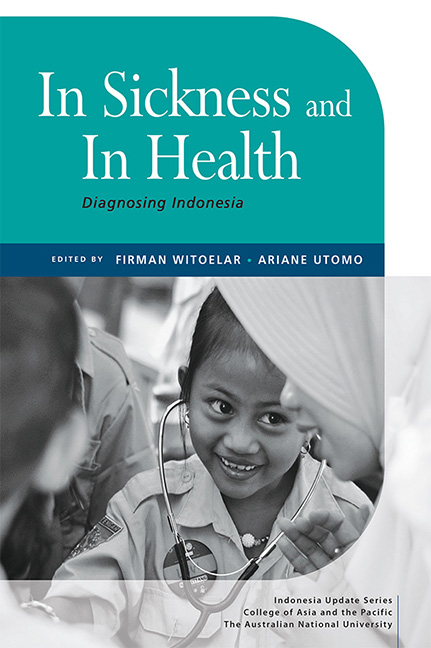3 - The right to health and the politics of health policy reform in post–New Order Indonesia
Published online by Cambridge University Press: 09 January 2024
Summary
Since the fall of Suharto’s New Order in 1998, Indonesia’s political elite has made significant changes to Indonesian law affording greater recognition to the right to health (R2H). Between 1999 and 2002, the People’s Consultative Assembly amended the 1945 constitution to introduce new rights to ‘obtain health services’, ‘have a good and healthy living environment’, have access to social security and ‘develop oneself through the fulfilment of basic needs’. In accordance with these new rights, it also imposed a new obligation on the state to provide ‘health service facilities’ and declared that the state would develop a social security system for all people. In the midst of and following these amendments, the national parliament (DPR) enacted a number of laws that reaffirmed—and in some cases expanded upon—these rights and obligations (Rosser 2017: 6–7). These included Law No. 36/2009 on Health which stipulates, among other things, that the government has obligations to provide health services, ensure resources for the health sector, and try to realise the highest possible standard of health (Pūras 2018: 5).
These legal commitments have been accompanied by health policies and programs that have sought to promote R2H in various ways. As the United Nations’ (UN) special rapporteur on R2H, Dainius Pūras, noted in a 2018 report, the Indonesian government has ‘made considerable progress with regard to the realization of the right to health, particularly by expanding universal health coverage’. It has also promoted R2H by increasing health expenditure as a share of the government budget. However, many commentators have suggested that the government has stymied progress vis-à-vis R2H by failing to address discrimination and inequality in access to health services, improve the quality of health services, address the growing burden of non-communicable diseases, enhance access to clean water and sanitation, control addictive and harmful substances, ensure healthy environmental conditions, and— particularly since the onset of the COVID-19 pandemic in 2020—ensure the country is protected from emerging infectious diseases.
The purpose of this chapter is to shed light on the reasons for this outcome and the likely future trajectory of health policy in Indonesia by examining the political dynamics that have shaped health policy in post–New Order Indonesia.
- Type
- Chapter
- Information
- In Sickness and In HealthDiagnosing Indonesia, pp. 37 - 55Publisher: ISEAS–Yusof Ishak InstitutePrint publication year: 2022

